The statue of Havildar Ishar Singh was unveiled close to the Guru Nanak Gurdwara in Wednesfield, Wolverhampton, reports Asian Lite News
A three-metre high bronze statue of a heroic Sikh soldier was unveiled in Wolverhampton to mark the anniversary of one of the bravest last stands in military history.
The statue, designed by local artist Luke Perry, was unveiled close to the Guru Nanak Gurdwara in Wednesfield, Wolverhampton and depicts Havildar Ishar Singh, the officer in charge of the Sikh soldiers who fought to the very end.
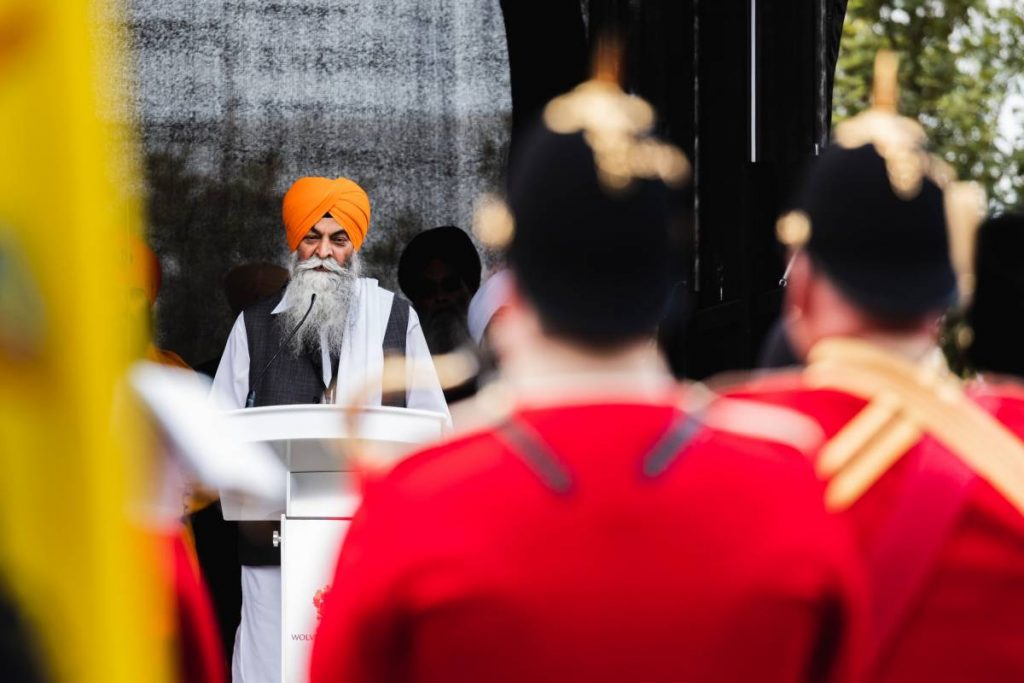
The annual Saragarhi Day event is commemorated by Sikhs across the UK and the world.
But this year is special because local Sikhs, who make up almost ten per cent of Wolverhampton’s population, around 23,000 people, raised over £100,000 to commission the statue.
The Jathedar Sahib, the spiritual leader of the Sikh faith, travelled from India to unveil the statue. The event was live streamed to a global audience of Sikhs.

Major Daljinder Singh Virdee, chairman of The Defence Sikh Network, said: “Sikhs have a long a proud tradition of service in the British Army. Saragarhi Day is a way to remember the vital contributions that Sikhs have made to the UK. I am proud that the Army is a diverse and inclusive organisation where Sikhs are fully included.
“The history of the British Army is filled with stories of men and women who have displayed our core values of courage, discipline, respect for others, integrity, loyalty and selfless commitment and paid the ultimate sacrifice in defence of the nation and its interests.
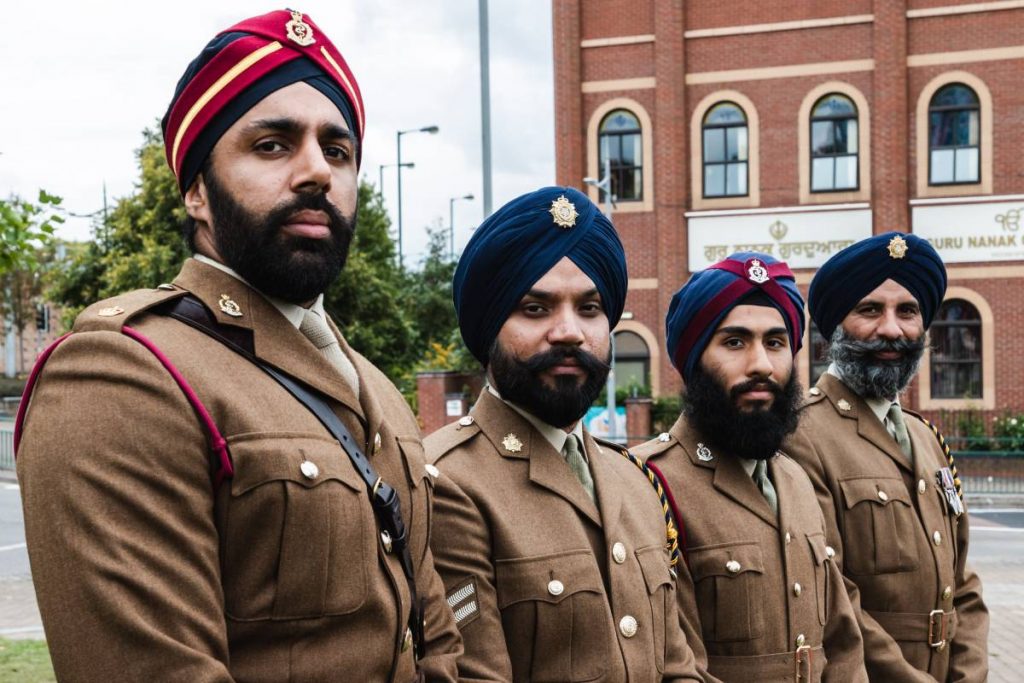
“The sacrifice made by our brothers 124 years ago is an example to British troops then and now: ‘Bole So Nihal, Sat Sri Akal!’”
On 12th September 1897, 21 Sikh soldiers of the Army of British India defended a signal station on the North West Frontier of modern Pakistan against insurmountable odds.
Saragarhi was a hilltop post on the border of modern Pakistan and Afghanistan. Strategically important, it lay between two British forts which kept marauding Afghan tribesmen out of British India.
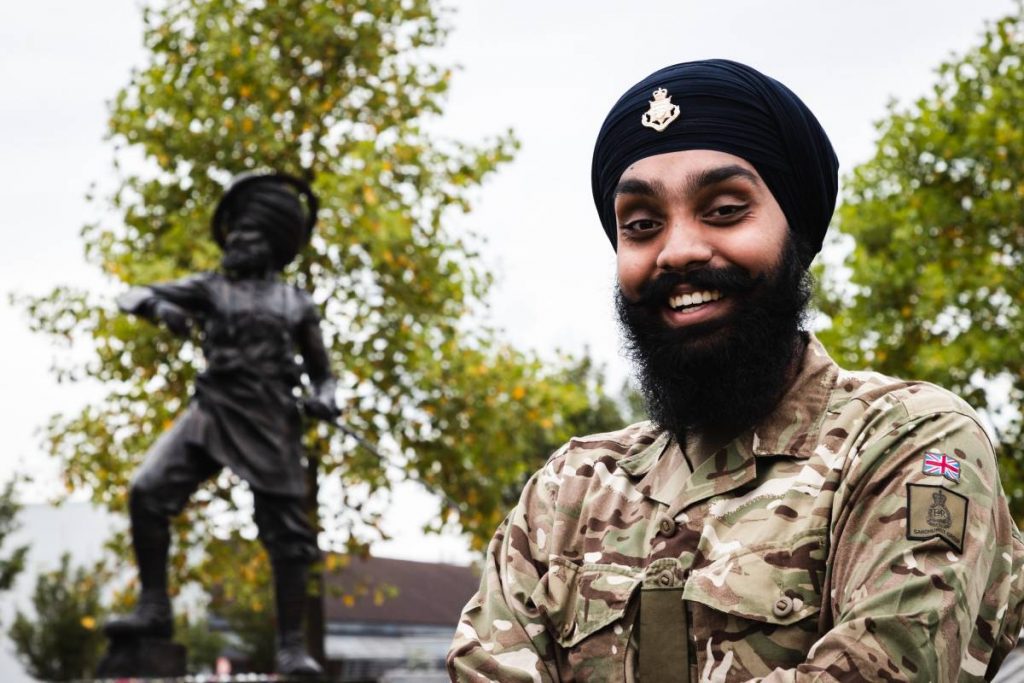
On the morning of that fateful day, Saragarhi was surrounded by around 10,000 Afghans, also known as Pathans. The station signalled one of the forts to ask for assistance and found that the forts were already under attack and could not help the beleaguered Sikh soldiers.
The defenders of Saragarhi decided to fight and die to protect the soldiers of their regiment in the forts. After fighting off several attacks, the Sikh soldiers fell back and were gradually overwhelmed.
None of the defenders remained alive but the 21 Sikhs had accounted for around 1,400 Afghans. The last Sikh soldier was said to have killed over 40 tribesmen in the defence, dying with the Sikh war cry on his lips.
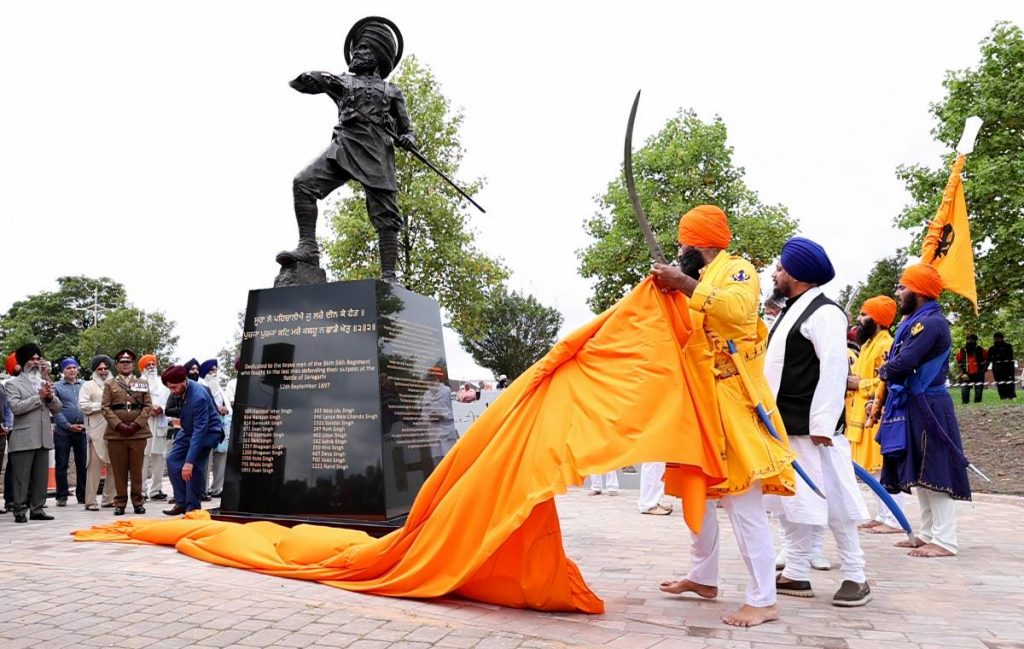
The soldiers helped save the two forts and eventually forced the Afghans back through the Khyber Pass. For their actions, the defenders of Saragarhi were awarded the Indian Order of Merit, the highest award available to soldiers of the British Indian Empire.
Havildar was Ishar Singh’s rank in the Army of British India which is equivalent to Sergeant in the modern-day British Army.
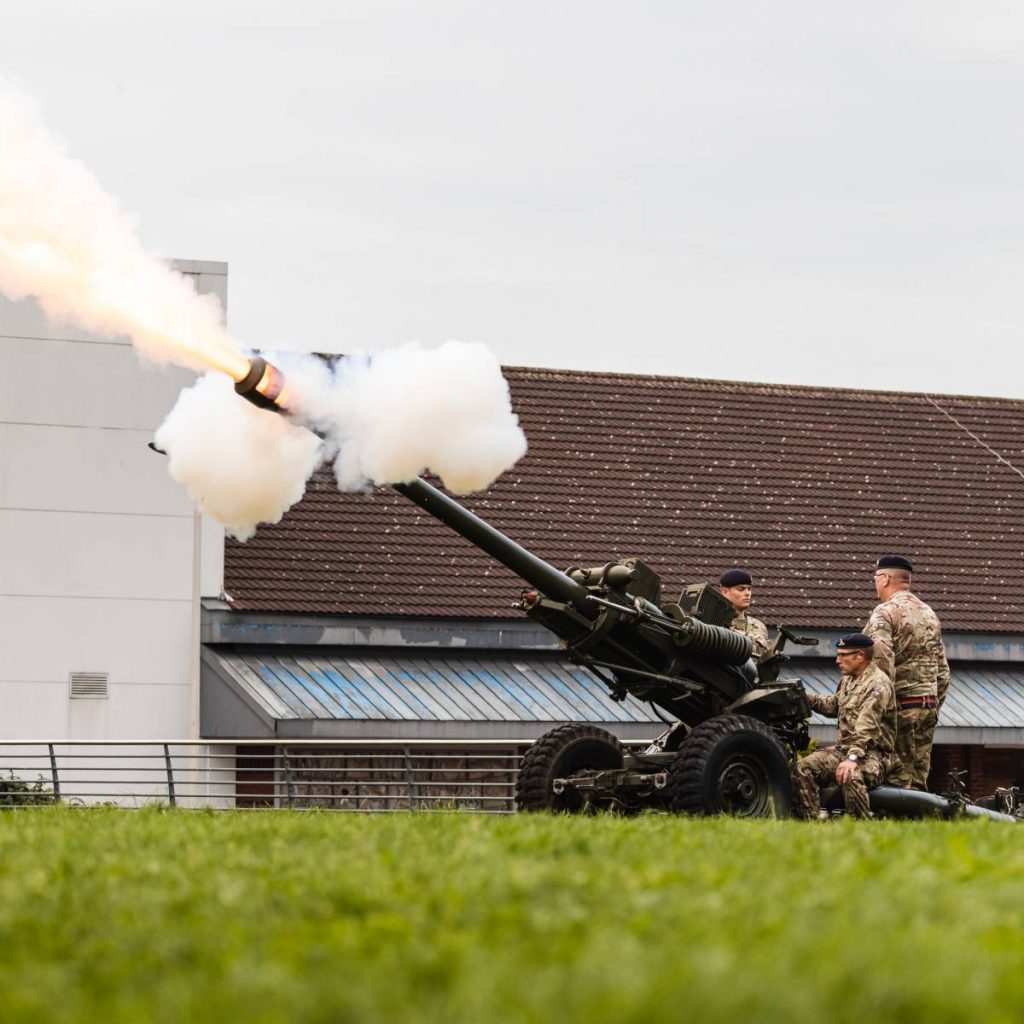
The organisers of the Wolverhampton event, the Guru Nanak Gurdwara, asked the British Army for support. 11 Signal & West Midlands Brigade was proud to provide soldiers from Wolverhampton-based 4th Battalion The Mercian Regiment who formed a marching parade with band while troops from 210 Battery, 103 Regiment Royal Artillery, also from Wolverhampton, gave a field gun salute after the statue was unveiled.
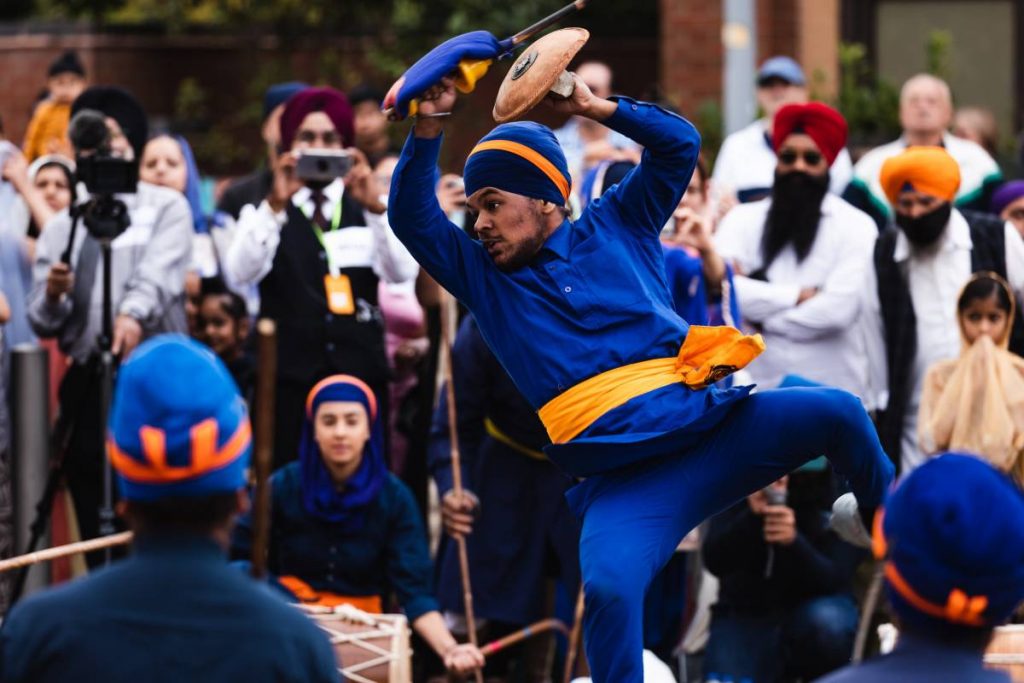
As the soldiers and veterans from 4 Mercian marched to the memorial, the Sikh National Anthem was performed by Defence Kirtan Jatha, a music group made up of serving Sikh soldiers.
ALSO READ-UK honours Dadabhai Naoroji
READ MORE-UK honours memory of 9/11 victims
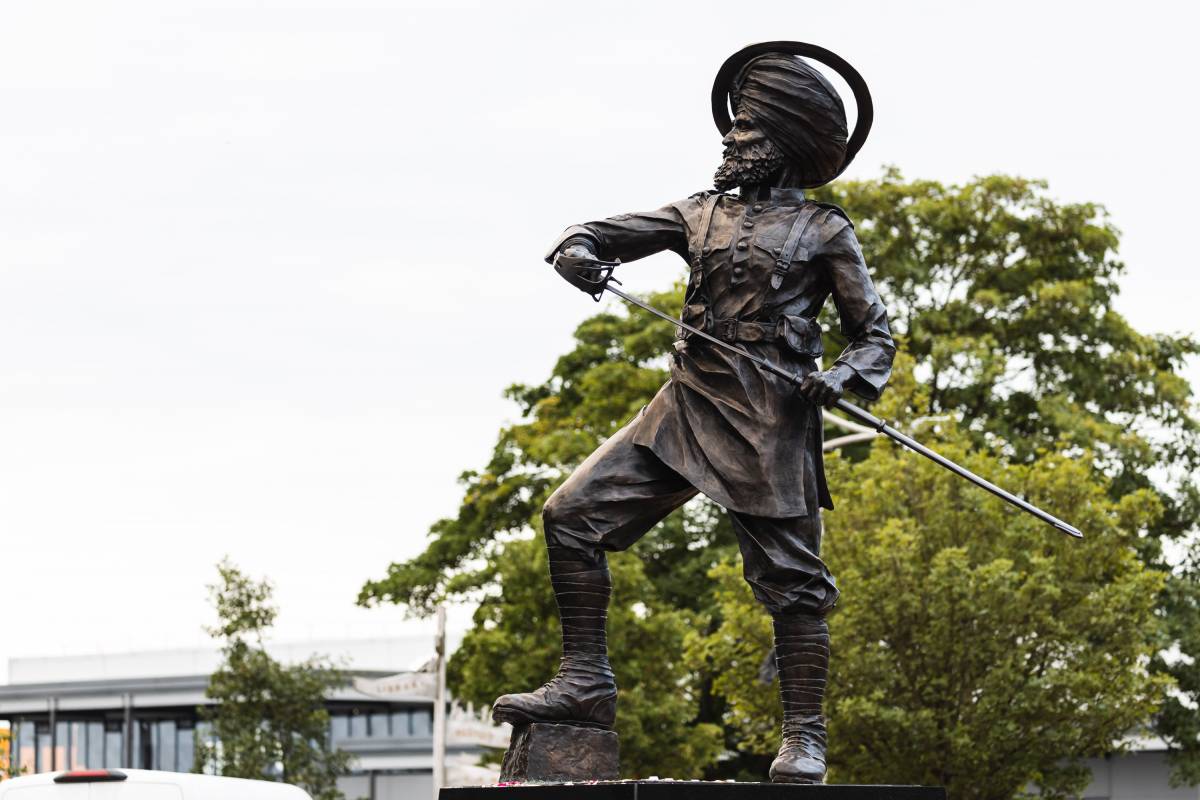
Leave a Reply